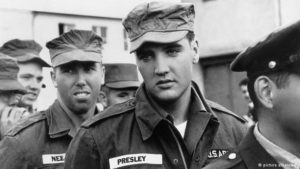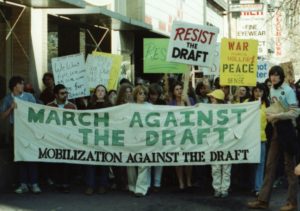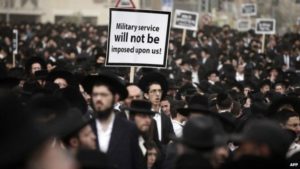 We begin this week with a very hearty mazel tov to Rabbi Gedaliah and Yehudis Oppen – he the Hebrew studies Principal at HAFTR High School, she and he, longtime friends of the Oisvorfer’s mishpocho – upon the wedding last week of their beautiful daughter Sorah to Yehuda Coriat – he the son of Rivka and Moshe Coriat. May the young couple enjoy each other and merit to build a large beautiful family of their own. Mazel tov to both extended families.
We begin this week with a very hearty mazel tov to Rabbi Gedaliah and Yehudis Oppen – he the Hebrew studies Principal at HAFTR High School, she and he, longtime friends of the Oisvorfer’s mishpocho – upon the wedding last week of their beautiful daughter Sorah to Yehuda Coriat – he the son of Rivka and Moshe Coriat. May the young couple enjoy each other and merit to build a large beautiful family of their own. Mazel tov to both extended families.
Mazel tov wishes to Naomi and Howie Berg of West Orange, friends of the Oisvorfer for over 35 years, upon the engagement of their beautiful daughter Dana to Michael Coplin.
Mazel tov to our friends, Esther and Baruch Weinstein upon the birth of another grandson, born to their children Tova and Mikey Kook. Welcome to the world Chaim Zev (Ethan David) . Mazel tov to Mikey’s parents, Esther and Mark Kook, and a big mazel tov shout out to Bernice Weiss and to Mordy Weinstein, very excited and proud great-grandparents of Chaim Zev.
Raboyseyee and Ladies
War Games-
Shoin: Where to begin and what to discuss in this week’s givaldige parsha of Shoiftim which contains 41 mitzvis and mamish a shmorgesboard of topics? Our choices, among a few others, include: judges & justice, sacred trees and pillars, idolatry and its penalties (death by stoning), the Sanhedrin (Jewish supreme court), appointment of a king, kohanim-liviyim (levitical priests, whatever those were), priestly portions, hasogas givul (boundary encroachment), conspiring witnesses, war preparations and sanctioned draft exemptions, the taking of captives, war booty, conducting a siege, and the famous myseh of the egluh arufa (the case of the unsolved murder and the broken neck of the red heifer as atonement). Let’s avada recall the famous medrish which tells us that Yaakov Oveenu was discussing this very topic of ‘egluh arufah’ with his son Yoisef just before he, Yoisef, was kidnapped, nearly killed, and sold into slavery by his very worthy brothers, the one’s we refer to as the holy shivotim (holy tribes). How it punkt happened that they were learning this very sugyo (topic) hundreds of years before Matan Toirah (Revelation) plus another 40 years as this mitzvah was revealed to the Yiddin mamish days before the end of the 40th year, ver veyst? It’s a medrish: anything goes.

What the hec is an ‘egluh arufa’ and what has it to do with a unsolved murder? Nu, since you asked and since we never discussed this topic before, let’s taka spend a paragraph on this subject. Bikitzur (in short), if a man is found dead, outside the city limits, the Sanhedrin must send judges to the crime scene to investigate and measure the distance to the closest city limits. Once determined -seemingly the man was murdered- the elders of the closest city, in atonement for the unsolved murder, must bring a calf and break its neck. They must also proclaim their innocence and state: “yodaynu loi shofuc es hadom hazeh, vieynaynu loi ro-uh” (our hands did not spill this blood and our eyes did not see). Though it’s quite poshit that none of the city elders or any member of the Sanhedrin are suspects, it’s on them to investigate, measure the distance and then to atone. Of course, when a topic which includes a murder mystery, city limits, the Sanhedrin and the elders of the city closest to the corpse makes it into the Toirah, there must be good reason. What that is, ver veyst. Veyter!
For many years, the Oisvorfer was under the impression that the term ‘hasogas givul’ (boundary encroachment) was meant to also include and protect those who made significant investments into businesses from direct competition. Limoshol (by way of example), were person A to invest hundreds of thousands of dollars into a new store -limoshol (by way of example) a food establishment – person B, should not be granted permission, and by extension, should not be granted a kashrus certification, to open a store mamish next door, or even a block away, selling similar products. Was this ever enforced? Ver veyst? Ober, bazman hazeh (in our times), the facts on the ground in kimat every frum community are punkt farkert: When store A opens and is perceived to be doing well, and even if not, store B opens on the very same block or within walking distance. This is especially so when it comes to kosher food establishments, but is certainly not limited to food. And why is this practice allowed? Whatever happened to the mitzvah of hasogas givul? Is encroachment now kosher and sanctioned? Ober the answer is just as simple: money! Given that the local Vaad (kosher supervisory agency) avada needs to get paid for its services, and given that each food establishment requires their certification, and given that they make more money as more establishments open, notwithstanding the harm or potential harm they could be causing the owners of store A, and others, hasogas givul as a concept has been cancelled. Shoin, business is business.
 Nu, let’s begin our 7th review of parshas Shoiftim with the Toirah sanctioned draft exemptions, a topic grada still hot thousands of years later over in Israel where certain charedim refuse enlistment claiming exemption form of sanctioned army exemption. By way of introduction, Moishe is instructing the Yiddin on war preparations. Let’s recall that the Yiddin are, after 40 years in the midbar, mamish but days and efsher weeks away from crossing the Jordan and entering the Promised Land. Let’s also recall that the Land is fully occupied by the nations the Yiddin will be instructed to drive out and or annihilate. They need to wage war and need an army of men.
Nu, let’s begin our 7th review of parshas Shoiftim with the Toirah sanctioned draft exemptions, a topic grada still hot thousands of years later over in Israel where certain charedim refuse enlistment claiming exemption form of sanctioned army exemption. By way of introduction, Moishe is instructing the Yiddin on war preparations. Let’s recall that the Yiddin are, after 40 years in the midbar, mamish but days and efsher weeks away from crossing the Jordan and entering the Promised Land. Let’s also recall that the Land is fully occupied by the nations the Yiddin will be instructed to drive out and or annihilate. They need to wage war and need an army of men.
A number of decades back, when the Oisvorfer was still quite young, his father, OBM, told him of the various tricks employed by the Yiddin of his generation -we’re talking about the late 1930s- to avoid conscription into the army. For some it worked, others weren’t as lucky and were forced to serve. Back in the 1960s with the Viet Nam war raging and with a mandatory draft still the law of the land, all males 18 and over were required to register. And just like in Toirah times, a few exemptions were offered. Those attending post high school yeshivas, could and did claim a religious exemption. Draft dodging yeshivas were mamish the rage. Several years ago, we covered a few of the exemptions Moishe gave the Yiddin, and this year we will review those and also discuss one that we have not. Lommer lernin (let’s learn).
 Says the heylige Toirah (Devorim 20: 5-8) azoy: “When you go out to the battle to meet your enemy…the officers shall speak to the people, saying: Who is the man who has built a new house and not inaugurated it? Let him go and return to his house, lest he die in the war and another man will inaugurate it. Who is the man who has planted a vineyard and not redeemed it? Let him go…lest he die in the war and another man redeem it. Who is the man who had betrothed a woman and not taken her to be his wife? Let him go…lest he die in the war another man take her….”
Says the heylige Toirah (Devorim 20: 5-8) azoy: “When you go out to the battle to meet your enemy…the officers shall speak to the people, saying: Who is the man who has built a new house and not inaugurated it? Let him go and return to his house, lest he die in the war and another man will inaugurate it. Who is the man who has planted a vineyard and not redeemed it? Let him go…lest he die in the war and another man redeem it. Who is the man who had betrothed a woman and not taken her to be his wife? Let him go…lest he die in the war another man take her….”
Did you read who’s exempt? See it again! Interestingly enough, allowances were made for an engaged man that did not yet get to enjoy his future wife’s fruits, yet the married man, many with kinderlach, whom we assume would be missed at least by his children, were he to perish, had to serve? Does this make sense? Why would the heylige Toirah offer a single, about to be married man an exemption, yet put the life of a married man with children efsher into harm’s way and jeopardy? Nu as you can imagine, the Oisvorfer was not the first to raise this question and many discussed it. And, said the Ibn Ezra so gishmak azoy: A person engaged to be married is taka eager to shoot his gun ober not the one that will help win any wars, if you chap. This individual would likely flee the battlefield. Nu, the Ibn Ezra didn’t say it quite as colorfully as did the Oisvorfer but the message is the same. A young, engaged to be married man is deliriously happy; he’s about to enter an exciting period of his life, so he thinks nebech, and his entire future lies before him. The last thing on his mind is a voluntary war; he is a flight risk. And should he desert, others might follow and shoin, the war is lost. This group, which also includes a fellow that built a house but didn’t yet move in, also are likely deserters. They are invited to leave the battlefield before the battle begins. On the other hand, married men, accustomed to war (mostly at home) are long over such delusions of grandeur and even with kids, would be more than happy to get out of the house and serve. Many would gladly signup. In fact, war is likely the only place they’ll get to shoot their guns, if you chap.
 Nu, efsher you chap why a single man would be flight risk but what about the man that just built a new house? Nu, let’s look at that posik in its entirety. Says the heylige Toirah: Who is the man who has built a new house and not inaugurated it? Let him go and return to his house, lest he die in the war and another man will inaugurate it. Is this person being exempted because he built a new house and didn’t yet get to enjoy it? Or, is he being exempted because if he dies, another man may come along and enjoy the fruits of his labor? Was this person to die in battle, what difference does it make to him if another man initiates his home?
Nu, efsher you chap why a single man would be flight risk but what about the man that just built a new house? Nu, let’s look at that posik in its entirety. Says the heylige Toirah: Who is the man who has built a new house and not inaugurated it? Let him go and return to his house, lest he die in the war and another man will inaugurate it. Is this person being exempted because he built a new house and didn’t yet get to enjoy it? Or, is he being exempted because if he dies, another man may come along and enjoy the fruits of his labor? Was this person to die in battle, what difference does it make to him if another man initiates his home?
Ober says Rashi, and who chapped the human psyche better, azoy: having another man initiate his house, would be source of severe grief, worse than death! And further illumining Rashi, adding some more color and clarity, added the Gur Aryeh azoy: seemingly the man who built a new house but did yet get to move in and enjoy, is exempt on two counts. Ershtens, should he perish in battle, he would taka be deprived of the opportunity to enjoy the home he labored to build. Let’s not forget the ongoing mortgage payments. Moreover, and maybe a bigger reason for this exemption is that were he to die, another man would move in and enjoy the house, the very one he built. For some, this second concern is even greater than the first. Many people can come to grips that they may not make it, that they may not get to enjoy all of life’s fruits, permitted and forbidden, if you chap, but they cannot get over the possibility that someone else might enjoy them in their stead! This person too, is a risk to flee and should he, would further demoralize his battalion. Seemingly the RBSO knew just how people think; azoy hut er bashafen mentch (that’s how He created man).
 And said the RambaM azoy: in order for one not to fear the battlefield, he cannot be distracted by thoughts or concerns regarding his family. A person who has either built a new home, recently betrothed, or planted a vineyard is easily distracted by anxiety over these new endeavors. It follows that these individuals are exempt from participating in the battle.
And said the RambaM azoy: in order for one not to fear the battlefield, he cannot be distracted by thoughts or concerns regarding his family. A person who has either built a new home, recently betrothed, or planted a vineyard is easily distracted by anxiety over these new endeavors. It follows that these individuals are exempt from participating in the battle.
The bottom line: though the RBSO handed out very logical exemptions that mistama many, after hearing the Koihen read off, availed themselves of, and though next week’s parsha will further expand the exemption to a newlywed under certain conditions, the RBSO wasn’t at all worried about conscriptions. In next week’s parsha, the RBSO gives enlisting soldiers a war benefit like no other; one that kept them from deserting and one that they could mamish enjoy. And did they ever! Nu, mistama you want to know now what the RBSO has in store for His soldiers, ober, halt zich eyn (keep your pants on). Avada, you can go to archives at www.oisvorfer.com and check out prior postings.
Now, let’s look at posik 8 which tells us azoy: “The officers shall continue speaking to the people and say, who is the man who is fearful and fainthearted? Let him go and return to his house, and let him not melt the heart of his fellows, like his heart.” In plain English: Said Moishe azoy: if you are poshit afraid, go home. We don’t want you and we don’t need you. Ober, let’s be practical: who among us is not fearful of going to war and fighting on the front lines? It’s grada quite poshit: when war rages, people die. Isn’t it logical that many or most would be afraid to serve and chose the going home option instead of serving? How did Moishe expect the Yiddin to assemble an army with all these exemptions? Ober says Rashi and who knew more or better, azoy: there are two opinions as to who fell into this category of being fearful. Said Rebbe Akiva: the heylige Toirah is referring to the average Joe who was mamish fearful of going to war; who can blame him?
Ober says Rebbe Yoisi Haglili (he, most famous for making a cameo in the Pesach Hagodo) azoy: Moishe was not referring to the average Joe or Yankel. Instead, he was referring to a person afraid to serve because of his own sins. He deemed himself not worthy and was afraid that the RBSO would cause him to die in retribution for his sins. Let’s get real: though few admit or discuss publicly, everyone taka does know his own weaknesses and where he has sinned. Sadly, the RBSO knows as well. Shtelt zich di shaylo (the question arises), azoy: who among us has not sinned? Was it even shayich, given those conditions, for an army to be assembled? And which sins might these include? Says the heylige Gemora (Soitah 44a) azoy: this category includes even minor transgressions such as speaking while putting on his tifilin. Nu, given that the transgression bar for being afraid was set to include even minor transgressions, how could Moishe expect the Yiddin to assemble an army when most of them were mistama guilty of much greater sins, if you chap? And how lucky are most you that you are not being asked to serve?
 Efsher we can also now give the yeshiva bochurim over in Israel who claim to have a yeshiva learning exemption, and others who refuse to serve, a pass. Efsher they are taka sinners, efsher they spoke while donning their tifilin, efsher they skipped a few words of benching (grace after meals), or, efsher they only mumbled a few words of the special LiDovid Hashem Oiree prayer we recite during the entire month of Ellul (and up to Shmini Atzeres) following shofar blowing. Efsher they allowed their rebbe to blow their shofar, if you chap. Or, efsher their sins were much greater. Efsher they used their tifilin straps for other activities, say it’s not so. Efsher, though sitting and learning in local yeshivas, they were looking at their smart phones and surfing the internet, chas v’sholom. In any event, being afraid is a separate exemption and seemingly a category by itself.
Efsher we can also now give the yeshiva bochurim over in Israel who claim to have a yeshiva learning exemption, and others who refuse to serve, a pass. Efsher they are taka sinners, efsher they spoke while donning their tifilin, efsher they skipped a few words of benching (grace after meals), or, efsher they only mumbled a few words of the special LiDovid Hashem Oiree prayer we recite during the entire month of Ellul (and up to Shmini Atzeres) following shofar blowing. Efsher they allowed their rebbe to blow their shofar, if you chap. Or, efsher their sins were much greater. Efsher they used their tifilin straps for other activities, say it’s not so. Efsher, though sitting and learning in local yeshivas, they were looking at their smart phones and surfing the internet, chas v’sholom. In any event, being afraid is a separate exemption and seemingly a category by itself.
Said the Kotzker rebbe so gishmak azoy: the exemption is not necessarily for those who committed various sins. Instead, what Moishe meant when he instructed the officers and or the kohanim to exempt those afraid was azoy: the plan was to root out those who were carrying their sins with them. Those who could not get over their sins, those unable to confront their misdeeds and find ways to improve. These people were efsher lacking in self confidence, an inability to repent for their sins and with that an inability to focus on the battlefield. They would be a major distraction. Moishe didn’t mind the sinners so long as they recognized their misdeeds and could get past them by seeking to change their ways. The bottom line: all humans sin and make mistakes. Those who can recognize their misdeeds and have a plan to overcome them, are battle worthy. Gishmak.
Nu, thankfully Choidesh Ellul is mamish here, and the High Holy days, are mamish approaching. Hopefully, this year when you beat your chests and klap al cheyt a few hundred times for each of the sins you may have and mistama did commit, efsher for beating the chest of someone you were not supposed to, if you chap, you will mamish have charoto (regret) and will (after conjuring up the image) undertake to change your less than exemplary behavior. And efsher taka the calendar and seder of the parshas was set so that parshas Shoiftim is always read during this month of Ellul. Let’s recall that Moishe spent the entire month of Ellul up on Har Sinai without eating or drinking while begging the RBSO to forgive the Yiddin for the eygel (golden calf) caper. Avada you know that he returned on Yom Kippur with two replacement tablets. Ellul, the rebbe would tell us while waving his shtekin, sometimes his own, if you chap, was a time for introspection and review of the past year.
Ober before we go about judging others because that’s human nature, let’s quickly chazir over the first few words of this week’s parsha. Says the heylige Toirah azoy: Shoiftim Vshoitrim teetain licho (judges and officers shall you appoint for yourselves). Efsher pshat is azoy: perhaps the message is that before we judge others, we need to appoint a judge over ourselves. We need to judge ourselves and pass the test. Only when we are truly well behaved, should we take upon ourselves to judge others.
A gittin Shabbis
The Oisvorfer Ruv
Yitz Grossman
